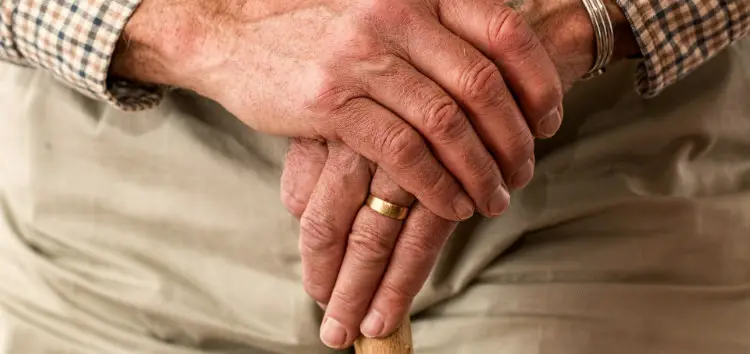Click To Call Us 24/7
Was your loved one abused or neglected in a Pennsylvania nursing home or assisted living facility? Do you fear for your loved one’s safety? Was your family’s trust betrayed by an elder care facility? Our experienced nursing home abuse and neglect attorneys are here to help.
Meet Our Nursing Home Abuse Attorneys.



Pursuing Justice In The Wake Of Elder Abuse
At Schuster Law, our dedicated legal team understands the powerful and painful range of emotions you must be experiencing. If you believe that you’re loved one is being mistreated, you’re likely feeling a mixture of shock and disbelief, anger and betrayal.
"Best Attorneys." Schuster Law was awesome!

Your family has been wronged. Nursing homes have only one goal – to provide adequate care and support to their elderly residents. This is a legal and ethical obligation. Nursing homes can be held accountable for failing to provide residents with sufficient care. Nursing home abuse and neglect are crimes under Pennsylvania law. You can fight back.
State regulations hold nursing homes and assisted living facilities to a high standard of care. So do civil and criminal laws, passed by Pennsylvania’s legislature to ensure that all elderly residents are treated with dignity and respect. This is not an option. Nor is justice. We believe that all families in Pennsylvania deserve justice after learning that their elderly loved one has been mistreated. You may be eligible to pursue compensation by filing a private civil lawsuit.
Contact Our Law Office Today
Click To Call Us 24/7
Filing A Nursing Home Abuse Lawsuit
As the nation’s elderly population increases, more and more seniors are moving into nursing homes and assisted living facilities. In many cases, the choice isn’t really an option, since their loved ones are unable to adequately provide for their care. Instead of staying in the home, these elderly loved ones turn to elder care facilities for their basic needs.
Unfortunately, the dramatic increase in elder care usage has come with a corollary increase in the number of seniors who suffer abuse and neglect at the hands of those who are meant to care for them. Nursing home abuse and neglect are shockingly common. Some estimates suggest that up to 25% of elders living in nursing homes will experience abuse. There is no excuse for this form of mistreatment. It’s illegal and unethical.
Do you suspect that your loved one is being mistreated? There may be an answer. Pennsylvania’s strong tradition of civil law may allow you to file a private civil lawsuit against the nursing home or assisted living facility. These lawsuits are distinct from the criminal justice system; there are no prosecutors to consider. This is your family’s choice, and your family’s search for justice. With an experienced attorney at your side, you can fight back.
Most nursing home neglect and abuse lawsuits, which are generally filed against the nursing home itself, are based in the legal theory of negligence – a careless disregard for the safety and wellbeing of residents. As we’ve already seen, nursing homes and assisted living facilities have a legal and ethical obligation to provide adequate care.
Nursing home abuse and neglect is what happens when a nursing home fails to uphold this obligation, allowing harm to befall a resident out of carelessness or mistakes. Thankfully, Pennsylvania’s powerful history of civil law allows families to file suit in cases of negligence, pursuing justice and financial compensation in the wake of a terrible event.
Steps To Building A Viable Lawsuit
In order to secure compensation, your family’s lawsuit will have to prove that a nursing home or assisted living facility owed your loved one a duty to provide adequate care free from abuse, but failed to uphold this duty. The duty aspect is given; before entering a nursing home, residents sign a contract of care that outlines these requirements.
After showing that the nursing home failed to uphold its duty, your lawsuit will continue to outline the forms of harm (damages) that your loved one incurred as a result of the nursing home’s negligence:
- necessary medical expenses
- pain and suffering, both physical and mental
- emotional distress
Once these damages have been enumerated, there’s only one element left to consider – proving that your loved one’s damages were caused by the nursing home’s negligence.
Common Cases Of Abuse
Nursing home abuse and neglect come in many forms. Often, mistreatment is hard to detect; in some cases, elder care facilities actively conceal their misconduct. The equation is made even more difficult because many seniors lack the capability to speak out about their mistreatment. Conditions such as dementia can lock elderly loved ones in their own private world of misery. Loved ones must be vigilant for signs of elder abuse and neglect.
Nursing home abuse can be sexual or physical, emotional or financial. It can take the form of assault, slaps and punches, or cause mental distress, such as an improper and callous comment about a resident’s loved one. These are intentional acts that cause harm, including:
- Sexual assault – when a nursing home staff member makes non-consensual sexual contact with an elder, including rape and fondling
- Physical assault – when a nursing home staff member uses physical force to harm a resident, including hitting, scratching, shoving and biting, along with the inappropriate use of restraints
- Emotional abuse – when a nursing home caregiver causes emotional distress to a resident through ridicule, humiliation, intimidation or neglect
Nursing home abuse is difficult to face. Most victims of this crime are frail and vulnerable, unable to protect themselves or seek help. It seems unthinkable, but for many seniors, abuse is a reality of daily life. Physical and sexual abuse, while not common, do occur.
Nursing Home Neglect
More common than nursing home abuse, nursing home neglect occurs when a facility fails to provide residents with adequate care and support, allowing dangerous medical conditions to worsen, creating unsafe conditions in living areas or failing to adequately nourish.
Fall accidents and broken bones are often a result of nursing home neglect when facility staff members fail to maintain a property that is easily navigable.
Some signs of nursing home neglect include:
Nursing home neglect can also take an emotional form, wherein a resident is left alone and unconnected to other people, suffering psychological trauma as a result.
While it may seem difficult now, taking action when you have learned about elder abuse or neglect is often the only way to ensure that the responsible parties are held accountable, that the mistreatment is stopped and that other elderly residents do not become victims themselves. Civil lawsuits are a crucial avenue for holding nursing homes accountable.
Act Now: Your Next Steps
If you believe that your loved one is in imminent risk of harm, the first thing to do is to remove them from the nursing facility as soon as possible. After your loved one is safe, legal action is the best avenue for recourse, as it allows families to secure needed financial compensation for their losses and holds the nursing home accountable.
You should also consider reporting the abuse to the proper licensing authorities. To submit a complaint to Pennsylvania’s Department of Health, which maintains licensing for nursing homes, call 1-800-254-5164 or visit the agency’s website here to make use of their online reporting feature. Reports can also be filed with your Area Agency on Aging.
Mind The Statute Of Limitations
After reporting your concerns, the next step is to reach out to an experienced attorney as soon as possible. Your time may be limited. If you intend to file a legal complaint, proceedings should be set into motion immediately. The longer you wait, the more difficult your claim becomes. Witnesses may move out of state, or forget crucial details. Physical evidence of the abuse or neglect can disappear. Timely action is absolutely necessary.
In addition, Pennsylvania’s statute of limitations may limit your family’s rights. The statute of limitations is a state law that limits the amount of time families have to file suit over nursing home abuse and neglect. Attempt to file your family’s lawsuit after the statute of limitations has run out and your case will almost certainly be dismissed. The time is now.
The statute of limitations for nursing home abuse cases is currently two years in Pennsylvania, beginning on the date of the abuse. Complying with this time limit is mandatory; there are very few exceptions.
How Much Does Filing A Lawsuit Cost?
Worried about the expense of filing a lawsuit? You don’t have to be. Our compassionate attorneys only offer their services on a contingency-fee basis – that means you pay us nothing until we secure compensation in your case. We only get paid when your loved one does.
Free Legal Consultations
Stepping into the legal process isn’t easy. Court procedure, legal documents, depositions – these things are complex, not to be taken lightly. If you choose to pursue justice, it’s essential to contact an experienced nursing home abuse and neglect attorney. This is no time to go it alone. Your family needs help, and exceptional resources.
The attorneys at Schuster Law are here for you. Our dedicated legal team has the resources and experience necessary to successfully pursue your case. You can trust us. Learn more about your legal options in a free, confidential legal consultation today. Your consultation comes at no charge and no obligation. There’s no risk to reaching out for help.
